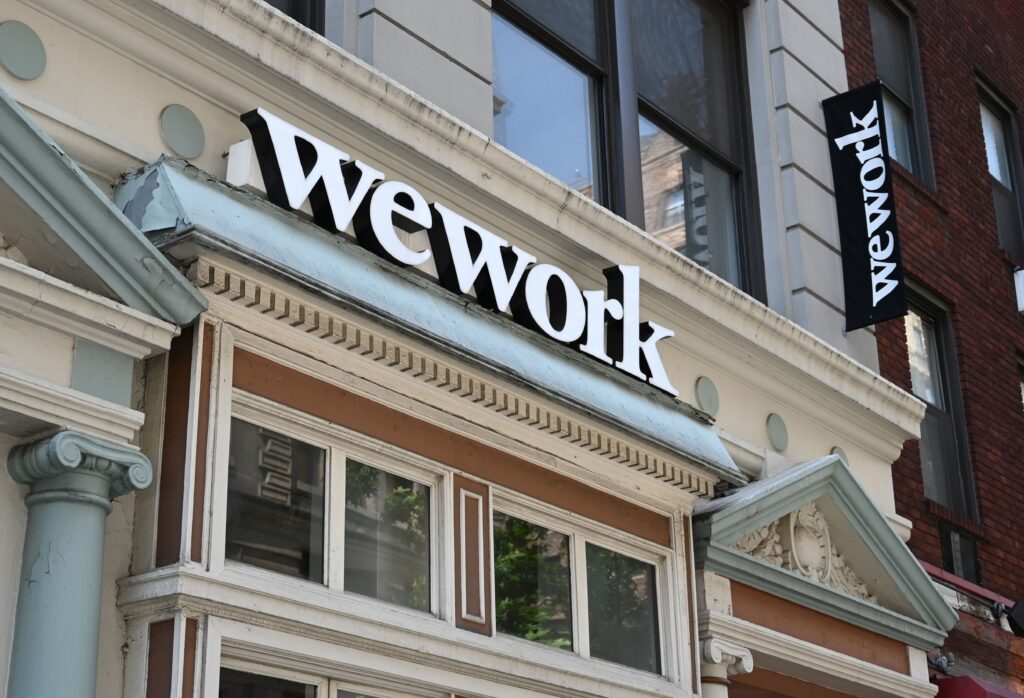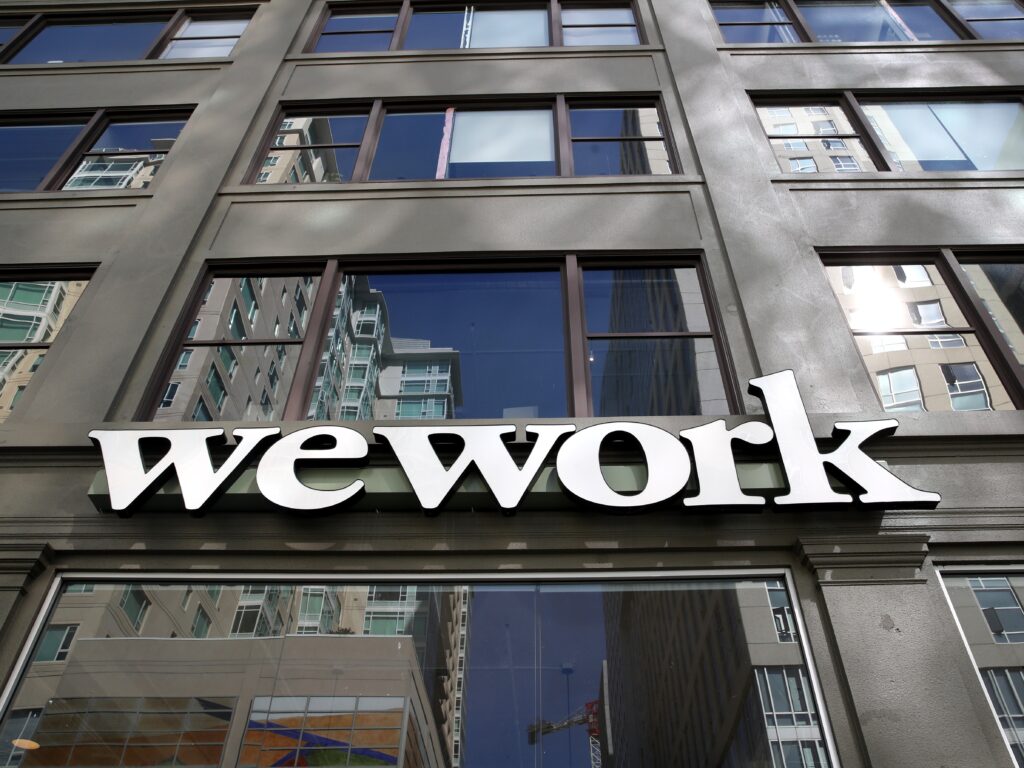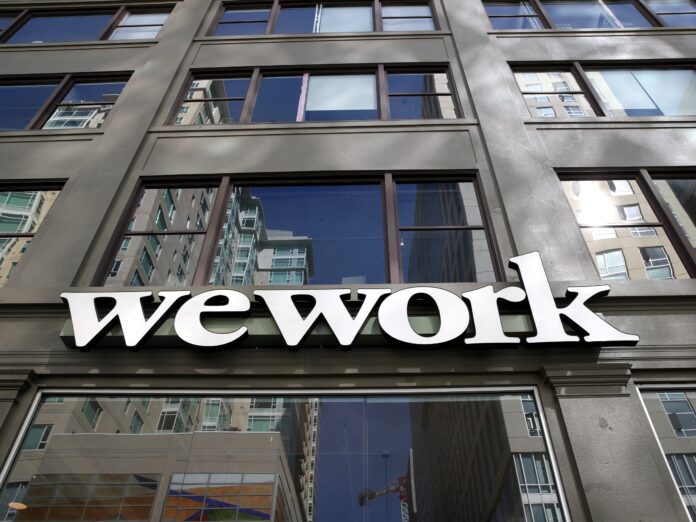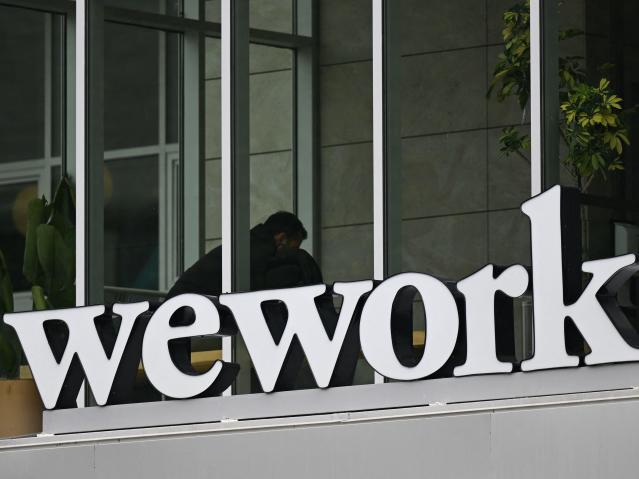In the ever-shifting landscape of the business world, one company’s path can serve as a cautionary tale for the rest. Enter WeWork, once valued at an astounding $47 billion, now grappling with doubts about its very future. As remote work becomes the norm and companies downsize their office spaces, WeWork finds itself struggling to adapt. With a net loss of $397 million in the second quarter and a decline in memberships, the flexible space provider faces a challenging road ahead. However, WeWork remains determined to weather the storm, implementing initiatives to improve liquidity and profitability over the next year. As this article delves into the challenges and potential solutions for WeWork, it sheds light on the consequences of an evolving business landscape and the efforts companies must undertake to stay afloat.
WeWork’s Struggle

Introduction
WeWork, the flexible space provider, is currently facing significant challenges that raise doubts about its future. The impact of the pandemic, coupled with declining demand for co-working spaces, has resulted in a net loss of $397 million for the second quarter. The interim CEO, David Tolley, has emphasized the importance of successful execution of management’s plan to improve liquidity and profitability over the next 12 months.
Declining Demand for Co-Working Spaces
The pandemic has dramatically changed the landscape of office spaces, with many companies opting to abandon traditional office spaces and allowing employees to work remotely. This shift has led to a decrease in demand for co-working spaces, directly affecting WeWork’s business model. The company has experienced member churn and softer demand, as more individuals choose to work remotely.
Financial Challenges
WeWork’s financial challenges are evident in its net loss of $397 million for the second quarter. While revenue has increased by 4% year-over-year, there are several factors contributing to its declining financial performance. Excess supply in commercial real estate and increasing competition in the flexible space market have led to higher member churn and softer demand. Additionally, macroeconomic volatility has added to the financial challenges faced by WeWork.
Management’s Plan for Improvement
To combat these challenges, WeWork’s management has outlined a plan for improvement. They aim to reduce member churn and increase sales in order to boost revenue. To control expenses and limit capital expenditures, the company is implementing restructuring actions and negotiating more favorable lease terms. Furthermore, WeWork is seeking additional capital through debt, equity securities, or asset sales to improve liquidity and profitability.
Stock Performance
WeWork’s stock price has experienced a significant decline after hours, with a 33% drop to 13 cents. This decline reflects investor sentiment following the announcement of the company’s doubts about its future. The current valuation of WeWork stands at a mere $166 million, a stark contrast to its peak valuation of $47 billion.
Valuation Decline
WeWork’s peak valuation of $47 billion occurred after a SoftBank-led Series H round of funding, which included a $1 billion investment. However, the company’s current valuation has drastically declined to $166 million. This decline in valuation is closely linked to the downfall of co-founder and former CEO Adam Neumann, who faced allegations of arrogance and poor management.
/cloudfront-us-east-2.images.arcpublishing.com/reuters/LXS44W73LRLFPKBBLPFQJJOCMM.jpg)
Leadership Crisis
Adam Neumann’s stepping down as CEO amid allegations of toxic management and arrogance further exacerbated WeWork’s struggles. The leadership crisis impacted the company’s image and reputation, making it challenging for WeWork to regain investor confidence. Efforts to redeem itself and turn around public perception have been largely unsuccessful, despite attempts to reinvent itself before going public in October 2021.
Redemption Efforts
WeWork’s redemption efforts have been met with limited success. The company sought to reinvent itself before going public, but unfortunately, the outcome fell short of expectations. These attempts to redefine WeWork’s value proposition and address the concerns of investors and the public have not yielded the desired results. This has led to further scrutiny and doubt surrounding the company’s long-term prospects.

Funding and Investors
WeWork has raised over $22 billion in funding, including debt, from notable investors such as SoftBank, Insight Partners, BlackRock, and Goldman Sachs. Despite the significant investments, the company’s financial challenges and declining valuation have posed significant risks for investors. The uncertainties surrounding WeWork’s future have resulted in a decline in investor confidence.
Conclusion
The challenges faced by WeWork, including declining demand for co-working spaces, financial struggles, a decline in valuation, and a leadership crisis, have raised doubts about the company’s future. The successful execution of management’s plan to improve liquidity and profitability is crucial for the company’s long-term viability. WeWork must navigate these challenges and regain investor confidence to secure a sustainable future in an evolving post-pandemic world.












